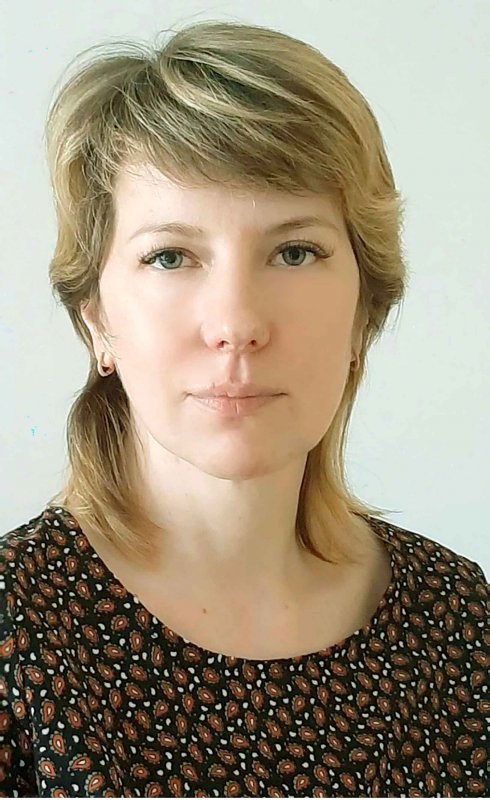One of the criteria which characterizes the work of the universities is the activeness of researches in scientific journals (the number of publications, the number of citations, h-index). The administration of Igor Sikorsky Kyiv Polytechnic Institute constantly supports and encourages the scientists whose contribution draws attention of international research society. Tetiana Dontsova, a Ph.D. in chemical engineering, the Assistant Professor at the Department of Inorganic Substances and General Chemical Technology, has recently been promoted significantly for her publications in Scopus research journals which are highly ranked.
 T. A. Dontsova is a graduate of TNR and ZHT departments (1999), she worked at the Institute of Biocolloidal Chemistry of the National Academy of Sciences of Ukraine. Later, she came back to her “native” department, where she now teaches and does research work. She told how to achieve activeness in publications.
T. A. Dontsova is a graduate of TNR and ZHT departments (1999), she worked at the Institute of Biocolloidal Chemistry of the National Academy of Sciences of Ukraine. Later, she came back to her “native” department, where she now teaches and does research work. She told how to achieve activeness in publications.
–Tetiano Anatoliyivno, the selection of materials, which are published by prestigious internationals editions, is characterized by both the innovativeness and the fields of scientific research which are interesting to our researchers?
– Yes, the field of science that I work in at the department is rather diverse. This, in particular, is nanomaterial synthesis based on titanium, tin, zirconium, metal, zink oxides and their usage in water purification, sensorics and catalysis. Apart from that, I work on applied topics, for instance “Remote Monitoring of Soil Quality” and “Developing Nanocomposite Sorption Materials of Manufacturing Waste or of Cheap Natural Raw Material for Water Purification Needs”. The articles published by editions which are indexed in international data bases of science are related to these topics.
– Very interesting. Which works did you do related to water purification?
– The results of recent works can be used in the agricultural sector or at local water purification plants. Regarding developing nanocomposite sorption materials of manufacturing waste or of cheap natural raw material for water purification needs, the results of this work were used for VAT “Lubnyfarm” and VAT ‘Ukrkhimanalis”.
– What is “remote monitoring of soil quality”?
– “Remote Monitoring of Soil Quality” is a pioneer work and does not have analogues in the world. It has begun in 2019 in terms of international Indian-Ukrainian project, I am the leader of it. Based on this project, remote monitoring of soils is going to be developed in order to define their quality and safety. The results will be useful for Ukrainian farmers, with whom we plan to collaborate in the future.
– Where were the researches done?
– Almost all the works were done at Igor Sikorsky Kyiv Polytechnic Institute in terms of Ph.D. thesis works of post-graduates (I was their research advisor) and of my thesis for a doctor’s degree which I am going to defend in the nearest future. Exceptional are the works which were done in collaboration with our partners at international research projects: Ukrainian-Belarusian “Heterogeneous Metal Oxide Catalysts for Wastewater Purification from Organic Compounds”, Ukrainian-Indian “Developing a Method of E-nose Soil Quality Identification” and Ukrainian-Chinese “Obtaining and Developing Nanoparticles of Metal Oxides and Metals Applied to the Surface of Carbon Nanotubes”.
– Do the student participate in such projects?
– Yes, post-graduates and students of the Department of Inorganic Substances, Water Purification and General Chemical Technology (in terms of research group “Nanomaterials and Nanotechnologies”) participated in experimental researches.
– Have post-graduates finished their works?
– Sure. I was the research advisor of all three who finished the works: Yuriy Fedenko, Svitlana Nahirniak and Oksana Makarchuk. The successulyy defended Ph.D. thesis works. Our collaborative pubications are presented in prestigious journals "Nanoscale Research Letters" and "Journal of Nanomaterials", they are also cited. I would like to emphasize that without the work of our students and post-graduates it would have been hard to achieve such results.
– In which other journals were your articles published?
– Over recent year such articles have been published: "Bioresource Technology" (іmpact factor (ІF) 6.67), "Colloids and Surfaces A: Physicochemical and Engineering Aspects" (ІF 3.27), "Journal of Materials Science: Materials in Electronics" (ІF 2.2), "Journal of Inorganic and Organometallic Polymers and Materials" (ІF 1.64), "Applied Nanoscience" (ІF 3.58) та "Journal of Nanomaterials" (ІF 2.23).
–What is necessary for a research work to be published by a prestigious edition, to draw attention of professionals and to be cited?
– It may sound banal, but, in my opinion, it is necessary to work hard to be successfully published by prestigious editions. Secondly, it is important to collaborate with partners from abroad. Thirdly, it is necessary not to fall in despair in case one who sent an article is refused. Instead, one should work hard on it and send it once again.
– And as a conclusion: what are your plans for the nearest future?
– Regarding plans, they have already been formed 3-5 years ahead: the defense of doctor’s thesis, writing articles in collaboration with students, post-graduates and colleagues, and participation in national and international projects.
Dreams indeed come true if one works hard for them to. That is why Tetiana Anatoliyivna, her colleagues and subordinates had a lot of work and new discoveries.

